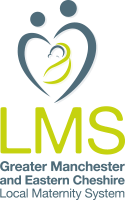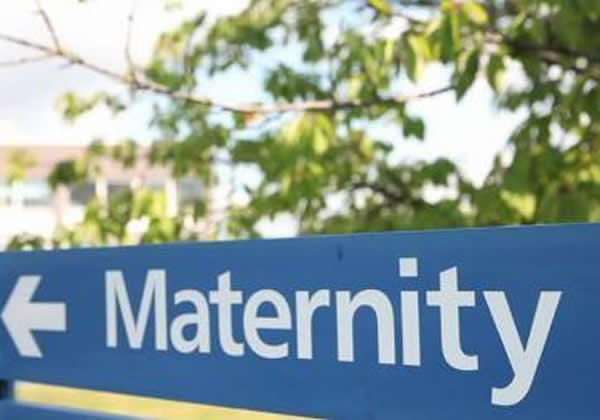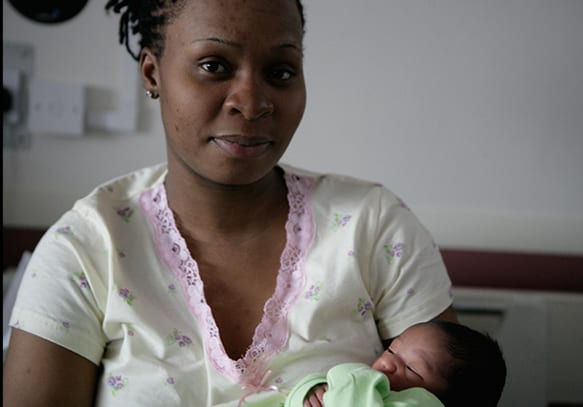Being pregnant
Signs of Pregnancy
Common signs of pregnancy might include:
-
- missing your period
- nausea and vomiting
- sore or tender breasts
- tiredness
- an urge to urinate more often
Every woman is different and you may not experience all of these symptoms.
Watch this video to find out more about pregnancy symptoms and what to do next.
The NHS website has more information on signs and symptoms of pregnancy.
Physical changes in pregnancy.
Heartburn
Indigestion, also called heartburn is common in pregnancy. Up to 70% of women report being affected by heartburn, which seems to get worse towards the end of their pregnancy. This is probably caused by pressure from your growing baby on your stomach and also hormonal changes affecting your digestive system. Speak to your midwife. Eating little and often rather than one large meal could help. Some antacids are safe to take, discuss with your midwife or a pharmacist for advice on which are suitable in pregnancy.
Stretch marks
Stretch marks are narrow, streak-like lines that can develop on the surface of the skin and affect around 8 out of ten women in pregnancy. They occur due to rupturing of the collagen under your skin caused by the stretching that has to occur as your baby grows. This is absolutely nothing to worry about and totally normal. Some women are very proud of these marks that show how strong their body has been to grow a baby. Other women feel self-conscious and some women buy creams to help them fade. It is personal choice, there is no right or wrong approach. In time the marks will fade from red/purple to a silver/skin-tone colour.
Haemorrhoids and Constipation
During pregnancy the hormone progesterone relaxes smooth muscle including those in the digestive system, meaning that it doesn’t contract as easily and therefore food moves slowly. Haemorrhoids are swollen veins in the bottom part of the bowel near the opening (anus), which can be painful and bleed when passing stool (faeces, poo), especially when constipated. Increasing the amount of fibre in your diet and drinking plenty of water will soften the food in your gut and make it easier to pass. Fibre can be found in fruits and vegetables, cereals and brown bread. This should decrease constipation and the pain relating to haemorrhoids. Other things that may help include avoiding sitting or standing for long periods of time and cutting out caffeine and fizzy drinks. Speak to your midwife or pharmacist about creams to help with your haemorrhoids.
Sleeplessness
Sleeplessness in pregnancy is a common complaint. As pregnancy progresses you might find that you are more tired but find it difficult to get comfortable at night. Some women also notice that they are experiencing strange dreams about labour and birth, which is normal and could be because you are trying to adjust to a big lifestyle change. When these factors are combined with other pregnancy symptoms it can be difficult to sleep! It is advised that you sleep on your left side and not on your back to ensure you and baby get plenty of oxygen especially later in pregnancy. A pregnancy pillow could help you to find a more comfortable position and relaxation music could also be helpful. If needed, sleeping during the day can be beneficial, this will also help you prepare for sleeping during the day when the baby is born.
Backache
During pregnancy, it is very common to get backache, especially in the early stages. During pregnancy, the ligaments in your body become softer and stretch to prepare you for labour. This can put a strain on the joints in your lower back and pelvis, which might cause pain. There are several tips you can try to ease the ache, such as wearing flatter shoes that help to distribute your weight, keeping your back supported when sitting, getting enough rest and try to avoid lifting heavy objects. Doing antenatal yoga or aqua natal classes can also help to build your muscles to better support your back. If your backache is very painful, talk to your midwife or GP; they may refer you to a physiotherapist who can give you some helpful exercises to support your back.
Please contact your midwife or maternity team as soon as possible if you have substantial back pain along with other symptoms such as bleeding from your vagina, pain on passing urine, if the pain moves to your side and under your ribs, swelling or a fever, so that they can rule out infection, premature labour or pre-eclampsia.
Oedema
During pregnancy swelling of the legs, ankles, feet and fingers is common due to your body holding more water than usual. It usually develops later in pregnancy and can be worse by the end of the day. Whilst this is normal, you should seek immediate medical help if you are experiencing a sudden onset of swelling, bad headaches, flashing lights/blurry vision, severe abdominal pain/severe pain just below your ribs, or vomiting with any of these symptoms. They could be signs of a condition called pre-eclampsia, which would need treatment during pregnancy.
There are a few simple suggestions to help ease the swelling: these include keeping your feet up and wearing comfortable shoes to prevent straps digging in. Keeping well hydrated will also help get rid of the water. Finally moving your feet around in circles and up and down will help to ease the discomfort.
Carpal Tunnel syndrome
Some women report feeling pain or tingling in their wrist or hand during pregnancy. This is caused by swelling or water retention (oedema) putting pressure on the median nerve in the wrist. In some cases, women report not being able to use their hand as normal and if this applies to you, please speak to your midwife. She may refer you to a physiotherapist who will help you to manage the pain and you may be given a wrist splint for support.
Pelvic girdle pain
Pelvic girdle pain is a collection of uncomfortable symptoms caused by a stiffness or looseness in your pelvic joints. This can cause your joints to move unevenly at either the back or front of your pelvis. One in five pregnant women report feeling pelvic pain. It is not harmful to your baby, but it can make it difficult to get around. The exact cause is still uncertain, but hormonal changes that cause your ligaments to relax are most likely to blame. If your pain is in the joint at the front of the pelvis, you may hear this called ‘SPD’ or Symphysis Pubis Dysfunction, named after that painful joint. Unfortunately for some women, the pain can be severe. If that is the case your midwife can refer you for physiotherapy and you may be given exercises, a support belt or in extreme cases, crutches to help you move around.
Getting to know your baby
The early relationship you, your partner and family have with your baby is really important. How you meet their needs, respond to them, love and care for them, shapes how their brain develops and also helps them learn about their feelings and how to be with others. This is as true before they’re born as when they arrive.
Getting to know your baby and bonding can begin before your baby is born.
We can think of your pregnancy in three phases:
First phase: You (and your partner) will be filled with thoughts about taking in that you are pregnant! You are adapting to new bodily sensations, changes, symptoms, and feeling your emotions are up and down.
Second phase: The hallmark of this phase of pregnancy is acknowledging your baby inside. You feel your baby moving more and will find yourself thinking more about your baby and imagining what s/he is like. You can bond with your baby by talking, singing, stroking, responding (e.g. if baby kicks, you can respond by stroking or pushing in to let baby know you are there) and thinking about him or her.
Third phase: In this last phase, you are thinking more about the birth and how baby will be separate and outside of you. You might feel excited and anxious at the same time. Closer to baby being born, you might feel eager to meet baby and also sad to lose that special togetherness you have shared over the last 9 months.
Your focus shifts from pregnancy, to your growing baby to getting ready to meet your baby.
Getting to know and bond with your baby can begin before your baby arrives. Some examples of how you can do this are:
- Talking or singing to your baby. If you have a partner or close family member or friend that will be supporting you through pregnancy and afterwards then this is something that they can do too. This video gives you an idea of how to do this.
- Giving your baby a name while you are pregnant (whether you chose to find out your baby’s gender or not). It may be a nickname. Choosing a name can encourage you to think about your baby as a person.
- Take time to gently massage/stroke your stomach during pregnancy.
If you would like to learn more, click below for further information and resources.
Dad Matters
Dad Matters is a Home-Start Project, based in Greater Manchester. Dad Matters works directly with Dads, helping provide information, advice, education and support for Dads through the antenatal period and beyond on what to expect at each stage, the important role they have in developing baby’s brain and how they can support their partner and be the attuned and caring parent they want to be. Dad Matters is also about being able to support dads with their mental health and helping them to understand why it’s important for their family. Dad Matters also supports dads to access services that they might need and that they might not usually consider.
Dad Matters offer monthly Dad Chats which are available online. Every Wednesday evening, 6pm on their Facebook page @dadmattersuk.
They talk about attachment, mental health and accessing services, current maternity guidelines, and anything else involving dads, and encourage dads to watch live and join the conversation and ask questions or share their experiences. They also repost the videos on their YouTube channel for those who can’t watch live.
Find out more in this outline about Dad Matters and visit their website below:






